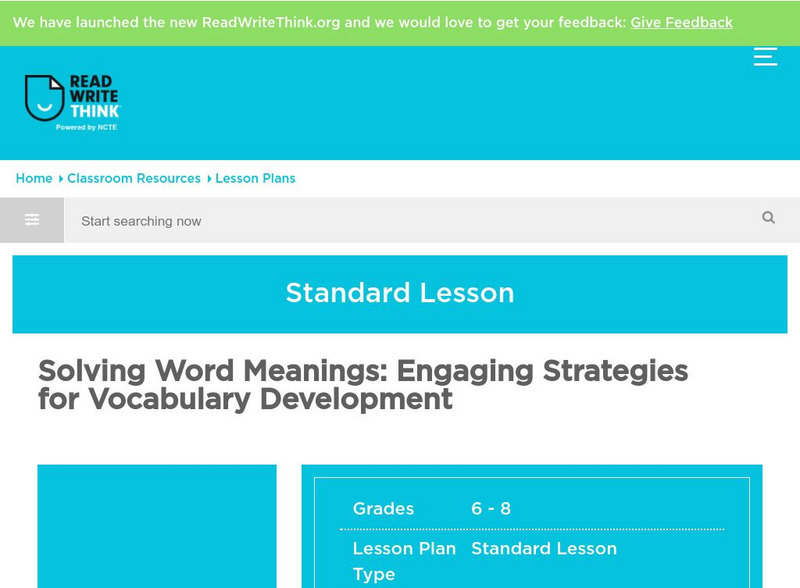ReadWriteThink
Read Write Think: Once Upon a Fairy Tale Teaching Revision as a Concept
Contains plans for five lessons that teach the difference between revision and editing using fractured fairy tales. In addition to objectives and standards, this instructional plan contains links to sites used in the lessons as well as...
Other
Reading Quest: Making Sense of Social Studies
Teaching students to read well in areas other than language arts requires teaching and reinforcing the kinds of reading strategies taught here. There are 27 strategies, ranging from brainstorming to word mapping. The site includes PDF...
Annenberg Foundation
Annenberg Learner: Analyzing Complex Text
During this lesson, students will use close reading strategies to analyze aspects of the setting in The Adventures of Huckleberry Finn by Mark Twain. [7:57] CCSS.ELA-Literacy.CCRA.R.10, RL.11-12.10a/b Text Complexity
Reading Rockets
Reading Rockets: Building Background Knowledge
The importance of background knowledge is especially salient in the age of Common Core. This article offers practical classroom strategies to build background knowledge such as using contrasts and comparisons and encouraging...
ReadWriteThink
Read Write Think: Defining and Exploring an Author's Stylistic Choices
Contains plans for two lessons that teach students how to recognize an author's use of style in literature. These plans use "Their Eyes Were Watching God" by Zora Neale Hurston as an example, but the basic ideas can be adapted to other...
ReadWriteThink
Read Write Think: Avoiding Sexist Language by Using Gender Fair Pronouns
Contains plans for two lessons that teach students how to avoid gender stereotyping while using pronouns. In addition to objectives and standards, this instructional plan contains links to sites used in the lessons as well as assessment...
Lumen Learning
Lumen: Rhetorical Reading: Academic Reading Strategies
This lesson focuses on reading strategies including understanding your purpose, and before, during, and after reading strategies.
ReadWriteThink
Read Write Think: Building Word Knowledge Through Informational Websites
A lesson plan through which learners identify, understand and work with important vocabulary words found in an online article on biodiversity. Based on the "Ten Important Words Plus" strategy that teachers can employ as part of...
ReadWriteThink
Read Write Think: Focusing Reader Response Through Vocabulary Analysis
This lesson plan enables students to compile a list of vocabulary words in association with a recently read novel. Included in the lesson plan is an overview, practice, objectives, downloadable resources, an interactive tool, and more.
ReadWriteThink
Read Write Think: Anticipation Guide
Anticipating is an effective reading strategy for readers of all ages. Utilize this template and graphic organizer to help your students become better readers.
Curated OER
Mc Graw Hill: Part 1 Reading: Literature: Summarize
Summarizing is a key skill needed in reading comprehension. This page describes how to summarize main ideas in a text. Click on Model button for a model with explanation and then click on Practice (Bottom Right)
Read Works
Read Works: The Meteor
[Free Registration/Login Required] An informational text about a meteor that fell to Earth in 2013 and the witnesses who documented it. A question sheet is available to help students build skills in reading comprehension.
PBS
Pbs Learning Media: To Kill a Mockingbird Teacher's Guide
This is a complete study guide for the novel To Kill a Mockingbird by Harper Lee including chapter-by-chapter guided reading questions (aligned to specific Common Core Standards), discussion questions, various writing prompts, and...
Writing Fix
Writing Fix: Revision Checklists [Pdf]
Walk your students through the writing process with this revision checklist. Students review their idea development, organization, sentence fluency and word choice. Click on appropriate grade-levels to get the desired checklists....
Curated OER
Mc Graw Hill: Part 1 Reading: Literature: 5th Grade Quote Accurately
An article describing the importance of making inferences while reading a story.
Curated OER
Mc Graw Hill: Part 1 Reading: Literature: Determine Theme
Determine the theme of a story with this reading activity. See the model and then practice identifying the theme.
AdLit
Ad lit.org: Create Reading Accountability
Engaged, accountable reading requires students to interpret, and respond, often creatively. This article suggests several personalized ways to hold students accountable for their reading.
Lumen Learning
Lumen: Writing Process: Finding Evidence
This lesson focuses on finding evidence to support your thesis, how to incorporate your findings into your own work, and how to effectively quote, paraphrase, and summarize your information. CCSS.ELA-Literacy.CCRA.W.9, W.11-12.1b...
Other
Critical Reading: Three Ways to Read and Discuss Texts
Designed to help students think about their reading and writing skills, this page offers three different ways to interpret and discuss texts.
US Department of Education
The Partnership for Reading: Childhood: Teaching Approaches: Fluency Instruction
A short explanation of why fluency instruction is important and how fluency develops in a child.
Florida Center for Reading Research
Florida Center for Reading Research: Text Analysis: Incredible Inferences [Pdf]
A lesson plan in which young scholars play a game to cover words on a game board by making inferences. Materials are included.
ReadWriteThink
Read Write Think: Guided Comprehension: Summarizing
Lesson that introduces students to the comprehension technique of summarizing. Students learn using the QuIP (questions into paragraphs) method which involves organizing information and putting it in writing.
ReadWriteThink
Read Write Think: Solving Word Meanings: Engaging Strategies for Vocabulary Dev.
A 5-lesson unit where middle schoolers learn to use context clues and semantic gradients together to determine the meanings of unfamiliar words.
ReadWriteThink
Read Write Think: Comparing and Contrasting: Picturing an Organizational Pattern
Contains plans for two 50-minute lessons that teach about the comparison/contrast organizational pattern. In addition to objectives and standards, this instructional plan contains links to PDF handouts and sites used in the lessons as...
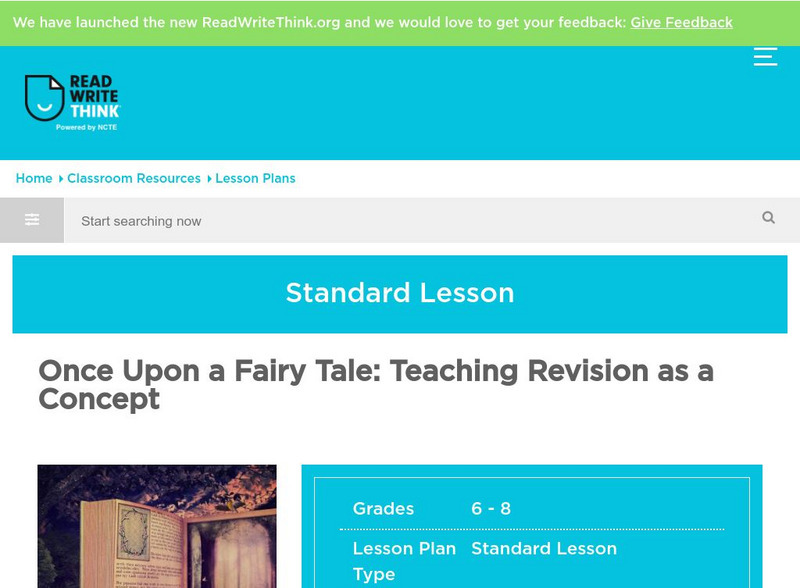
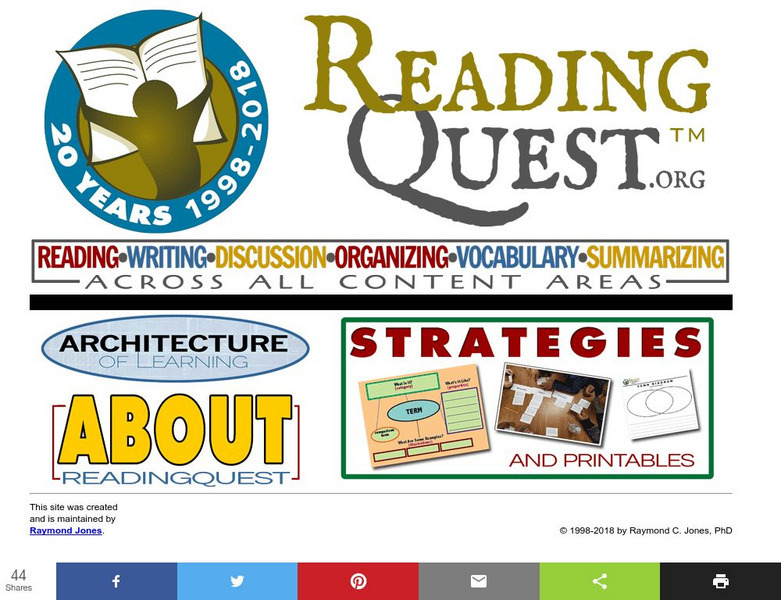



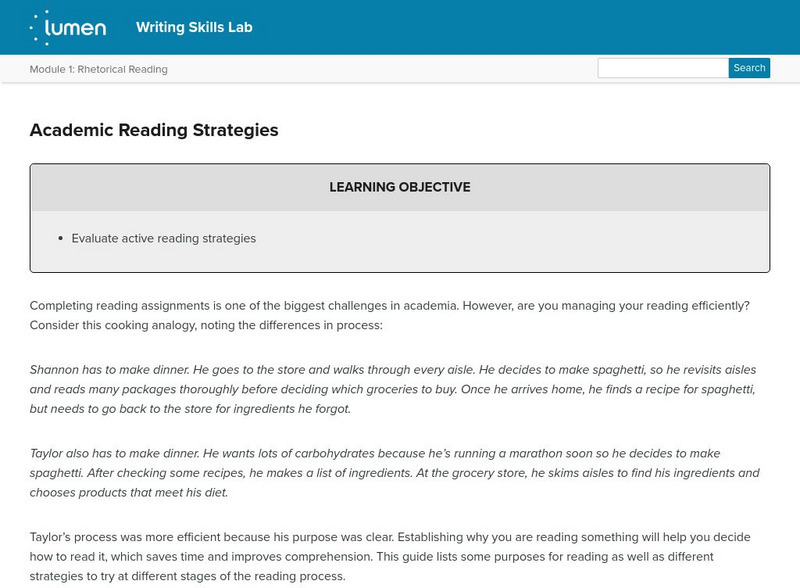


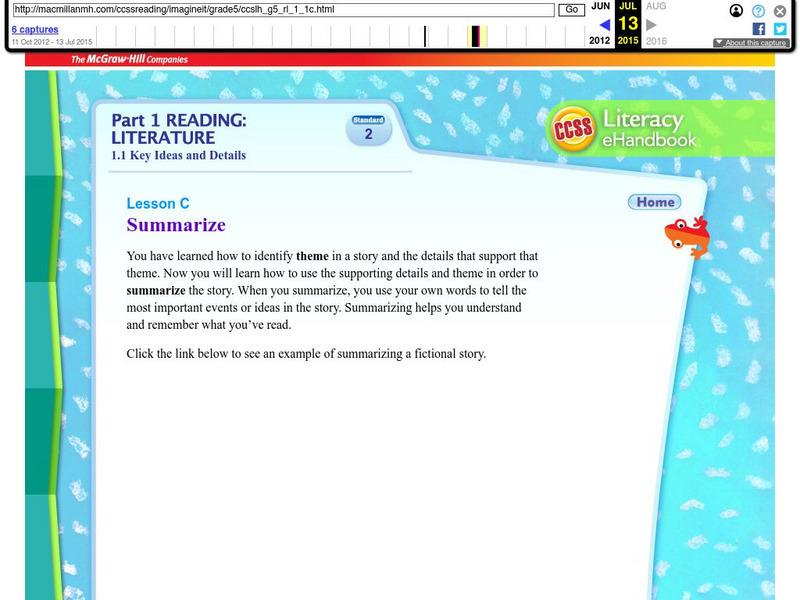
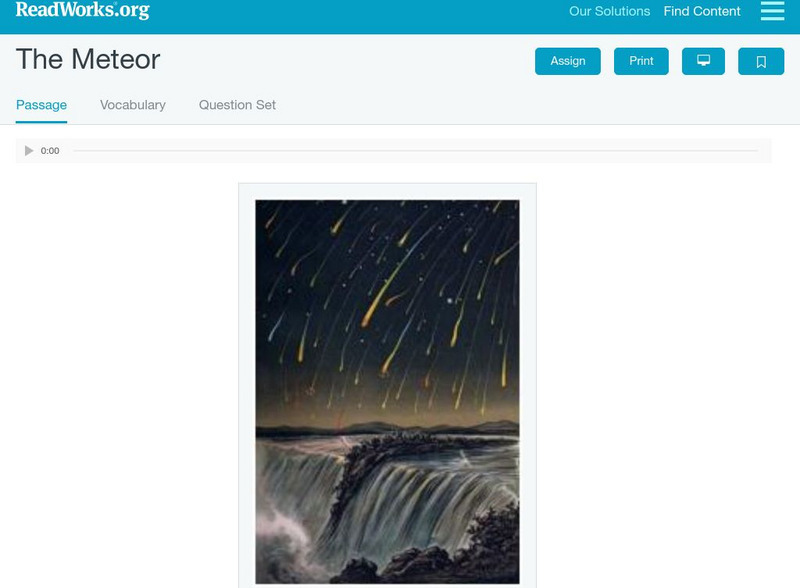


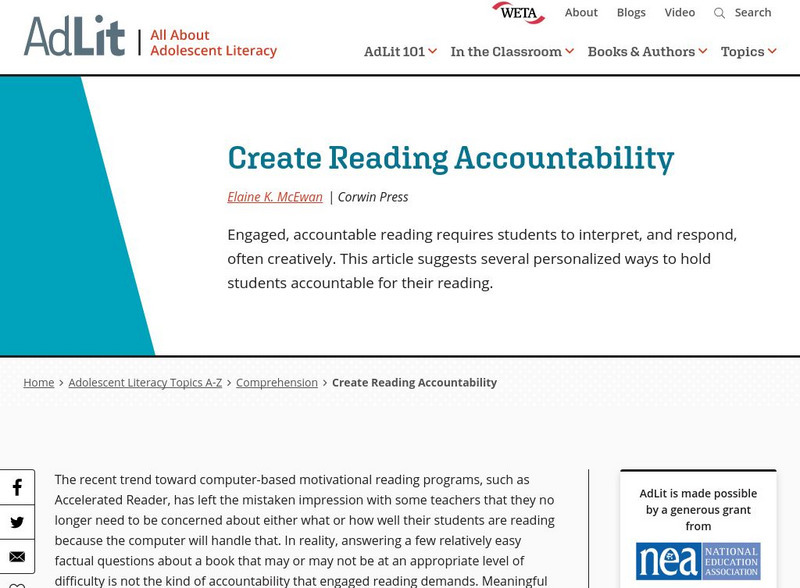
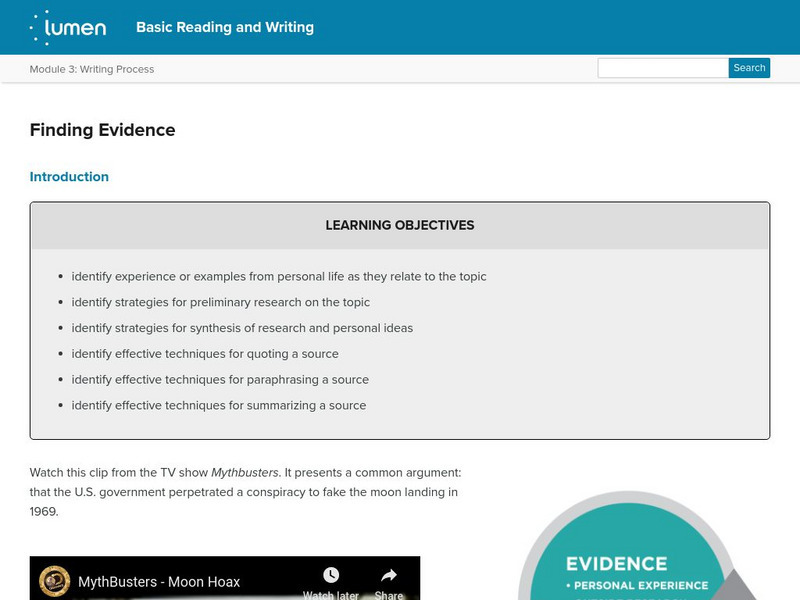

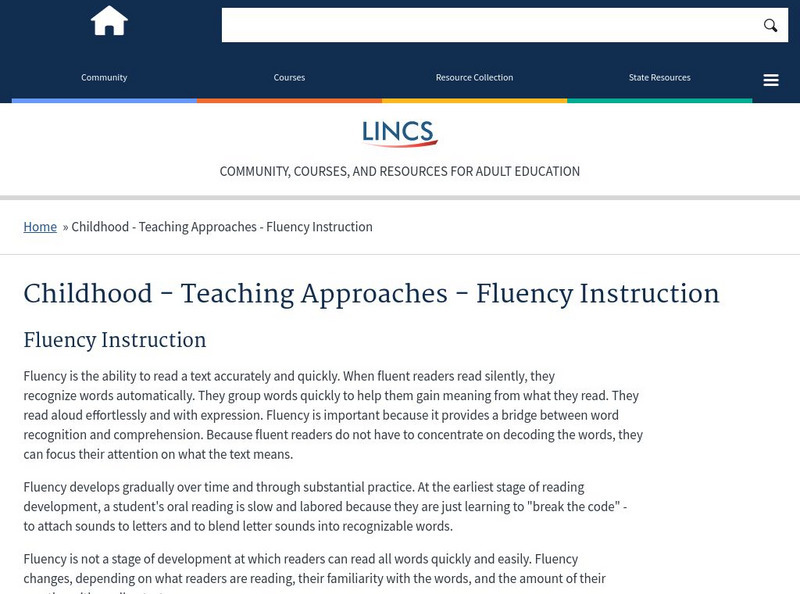
![Florida Center for Reading Research: Text Analysis: Incredible Inferences [Pdf] Lesson Plan Florida Center for Reading Research: Text Analysis: Incredible Inferences [Pdf] Lesson Plan](https://content.lessonplanet.com/knovation/original/509092-1f8464bfd22060486a7ced8fa8c4310e.jpg?1661786985)

